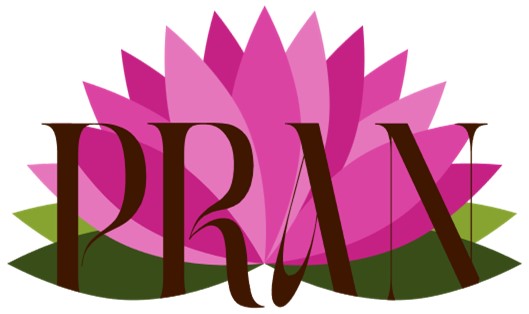Partnership Research Activities
Despite the rising number of Sub Saharan African Immigrants (SSAIs) in Canada, there is a dearth of studies concentrating on their experiences. PRAN was created to fill this void by conducting research on the hurdles faced by SSAI newcomers and the way they exhibit resilience and thrive despite numerous barriers and challenges.
As a multi-faceted project, PRAN relies on multiple meaningful collaborations and partnerships to accomplish its objectives. Our research partners focus on a diverse range of areas, including hurdles faced by SSAI newcomers in Canada, gendered experiences of immigration, entrepreneurial experiences of SSAI immigrants, systematic and everyday racism, and recording how SSAIs exercise their agency and resilience in foreign lands. PRAN will undertake three core research activities and a variety of partner-driven research initiatives
Core Research
Explore our Research activities below
PRAN members have collaboratively developed a comprehensive cross-sectional survey that will be executed in partnership with a private survey firm. This collaborative effort involves the participation of lead researchers from PRAN, as well as dedicated Research Assistants.
Spanning across four Canadian cities – Edmonton, Halifax, Montreal, and the Greater Toronto Are, the survey’s primary focus revolves around capturing the experiences of SSAI newcomers. It seeks to shed light on their resilience while navigating unfamiliar environments, grappling with systemic racism, and confronting instances of everyday discrimination. Findings from the cross-sectional survey will be used to inform the next research activity in the project. Reports from this activity will be uploaded as soon as they become available. This survey is led by Dr Zoua Vang, Dr Amos Nkrumah, Dr Jospeh Mendah, Dr Amal Madibbo, along with guidance from Dr. Philomena Okeke-Ijherika and other members of the Advisory Committee of Experts for the project.
Within SSAI communities, measuring resilience entails a comprehensive exploration of both pre and post migration values and practices. Leveraging the insights from our cross-sectional survey, we will design a mixed-methods longitudinal study to delve into the perceptions and viewpoints of Sub Saharan African Immigrants (SSAI). This study is pivotal to understand the impacts of migration on SSAI newcomers’ lives, particularly their journey of assimilation in Canada while upholding their cultural heritage. Additionally, it will document how these newcomers harmonize pre and post migration values, and whether their practices enhance or undermine their resilience.
This data will be significant for our project and as an independent study. It will also contribute to PRAN’s pre-arrival information initiative, aimed at assisting newcomers by providing essential information to facilitate their smoother transition. Notably, pre-arrival information on Canada is currently unavailable in Sub Saharan Africa, a gap that PRAN aims to bridge. By engaging with community partners, we aspire to craft a comprehensive pre-arrival information package, aiding SSAI immigrants in their Canadian settlement.
Reports from this activity will be uploaded as soon as they become available to ensure the community benefits from these findings soon.
Institutions play a significant role in the lives of SSAI newcomers, who are often victimized by systematic forms of racism through biased policies and procedures. Recognizing this critical institutional impact, PRAN will conduct Community Institutional Scans by interviewing key workers and community partners to conduct an in-depth study of selected organizations to determine gaps in services, available resources, and strategies. The purpose of this project is to enhance the capacity of community-based organizations that often lack the resources available to larger, mainstream organizations.
PRAN members have collaboratively developed a comprehensive cross-sectional survey that will be executed in partnership with a private survey firm. This collaborative effort involves the participation of lead researchers from PRAN, as well as dedicated Research Assistants.
Spanning across four Canadian cities – Edmonton, Halifax, Montreal, and the Greater Toronto Are, the survey’s primary focus revolves around capturing the experiences of SSAI newcomers. It seeks to shed light on their resilience while navigating unfamiliar environments, grappling with systemic racism, and confronting instances of everyday discrimination. Findings from the cross-sectional survey will be used to inform the next research activity in the project. Reports from this activity will be uploaded as soon as they become available. This survey is led by Dr Zoua Vang, Dr Amos Nkrumah, Dr Jospeh Mendah, Dr Amal Madibbo, along with guidance from Dr. Philomena Okeke-Ijherika and other members of the Advisory Committee of Experts for the project.
Within SSAI communities, measuring resilience entails a comprehensive exploration of both pre and post migration values and practices. Leveraging the insights from our cross-sectional survey, we will design a mixed-methods longitudinal study to delve into the perceptions and viewpoints of Sub Saharan African Immigrants (SSAI). This study is pivotal to understand the impacts of migration on SSAI newcomers’ lives, particularly their journey of assimilation in Canada while upholding their cultural heritage. Additionally, it will document how these newcomers harmonize pre and post migration values, and whether their practices enhance or undermine their resilience.
This data will be significant for our project and as an independent study. It will also contribute to PRAN’s pre-arrival information initiative, aimed at assisting newcomers by providing essential information to facilitate their smoother transition. Notably, pre-arrival information on Canada is currently unavailable in Sub Saharan Africa, a gap that PRAN aims to bridge. By engaging with community partners, we aspire to craft a comprehensive pre-arrival information package, aiding SSAI immigrants in their Canadian settlement.
Reports from this activity will be uploaded as soon as they become available to ensure the community benefits from these findings soon.
Institutions play a significant role in the lives of SSAI newcomers, who are often victimized by systematic forms of racism through biased policies and procedures. Recognizing this critical institutional impact, PRAN will conduct Community Institutional Scans by interviewing key workers and community partners to conduct an in-depth study of selected organizations to determine gaps in services, available resources, and strategies. The purpose of this project is to enhance the capacity of community-based organizations that often lack the resources available to larger, mainstream organizations.
